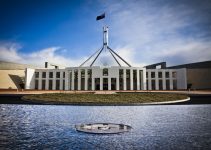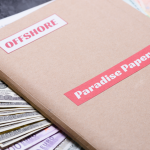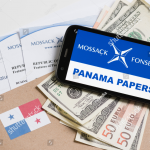Government Breaks Promise to Crackdown on Tax Avoidance by Multi-Nationals

The federal government has broken a promise to establish a public register of overseas shell companies owned by companies operating in Australia.
The proposal was intended to assist in the detection and prosecution of illegal activities such as tax evasion by multi-national companies, as well as inform legislation designed to crack down on tax avoidance schemes.
The backflip has called into question the government’s commitment to pursue tax evasion cases in Australia when they involve big business.
The election promise
In the lead-up to the 2016 election, then assistant treasurer Kelly O’Dwyer made the commitment that if elected, her government would establish a public register of identities that generate revenue in Australia but avoid paying tax by funneling money through overseas shell companies.
The register would help fulfill Australia’s G20 commitments in terms of transparency when it comes to tax affairs.
Ms O’Dwyer made the promise ahead of an anti-corruption conference convened by David Cameron in London. “We agree there needs to be a registry of beneficial ownership in our country,” she told the media.
The assistant treasurer claimed the register was so important that Australia would impose sanctions on “non-compliance jurisdictions”.
Australia was one of those non-compliance jurisdictions at the time, and will remain so into the near future.
Panama papers
The promise was made in the context of Panama Papers revelations.
The scandal involved leaks from Panama-based law firm Mossack Fonseca regarding more than 214,000 offshore ‘shell’ corporations set up in tax havens such as Panama, the British Virgin Islands and the Bahamas in order to enable wealthy companies and individuals to avoid paying tax in their own countries.
The law firm provided “front people”, known as nominees, to act as owners of these companies, which would funnel client money and launder illegally obtained funds.
The leak led to the Australian Taxation Office investigating 800 named Australian residents, but there has since been a resounding silence over the progress of those investigations and what is being done to stop such schemes.
The backdown
During Senate inquiries conducted a year after Ms O’Dwyer’s promise, Treasury was forced to admit that nothing had been done to prevent tax avoidance schemes.
Embarrassingly for the government, federal ministers couldn’t even figure out who would be responsible for drafting relevant legislation.
In fact, inquiries regarding the consultation process for the register were referred to the assistant treasurer Stuart Robert’s office, who referred them to the office of treasurer, Josh Frydenberg, who then sent the inquiries back to Mr Robert’s office.
Despite the farcical debacle, a spokesperson for the assistant treasurer claims at the end of last year that, “We remain committed… [to creating a public register] and we’re considering options”.
Now, the government has formally abandoned the charade, with the Department of Treasury responding to a question from Greens Senator Peter Whish-Wilson by stating, “No commitment to implement a register has been made by government.”
The Greens senator commented that, “Unfortunately, it’s an all too familiar trend. Long after the announcement to deflect public outrage, the lobbyists walk the halls and get their way,” adding,
“This shows that this government serves at the pleasure of the rich and the powerful.”
And the rich get richer…
Anti-poverty charity Oxfam points out that the use of tax havens contribute to global wealth inequality, allowing the rich to hide trillions of dollars in assets.
“Tax havens are at the core of a global system that allows large corporations and wealthy individuals to avoid paying their fair share,” said Raymond C. Offenheiser, President of Oxfam America, “depriving governments, rich and poor, of the resources they need to provide vital public services and tackle rising inequality.”
According to an Oxfam study, 8 per cent of all global individual financial wealth sits offshore, which totals US$7.6 trillion going virtually untaxed. This, Oxfam states, equates to US$190 billion in unpaid taxes.
The organisation reports that in Africa, as much as 30 percent of financial wealth is held offshore, money that could be used to save the lives of four million children a year through better healthcare services.
In Australia, large companies can legally avoid tax by shifting income offshore to subsidiary offices with lower tax rates.
Almost 60% of the top 200 companies in Australia declare subsidiaries in tax havens. As a result, around one-third of ASX 200 companies have effective tax rates in Australia of less than 10%, despite the official company tax rate for large business being around 30%.
The Tax Justice Network has found that around $40 billion in tax is diverted away from the ATO via corporate tax avoidance practices every year. And this is not to mention the use of schemes to launder money and engage in criminal practices such as tax fraud and money laundering.
Stated benefits
When the government expressed its strong intention to act on tax avoidance, Ms O’Dwyer explained that a public register, “… does improve transparency. It means that the public and law enforcement agencies know who ultimately controls the company. It means it is a lot easier to expose wrongdoing or fraudulent conduct. It make it much easier to disrupt illicit financial flows and it makes it much, much harder to engage in tax avoidance.”
The recent backdown appears to be yet another example of our government protecting the interests of big business at the expense of the rest of us.







